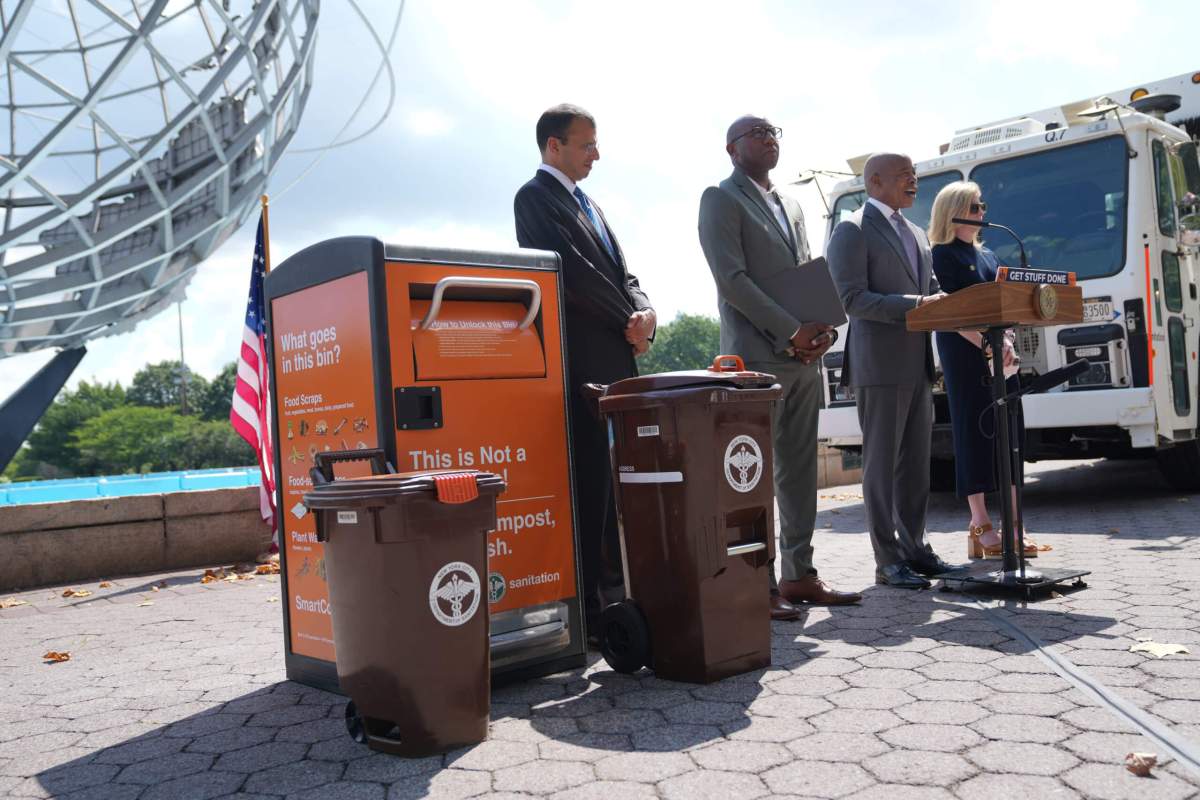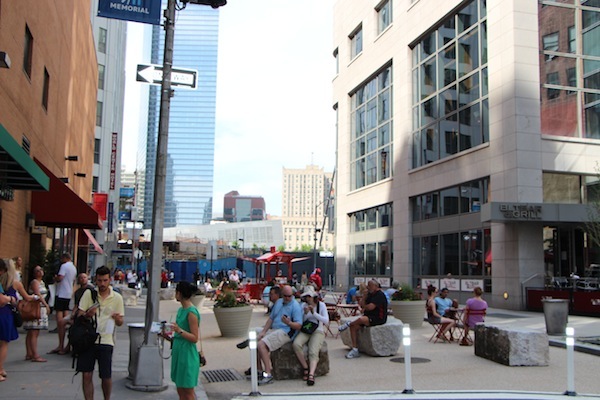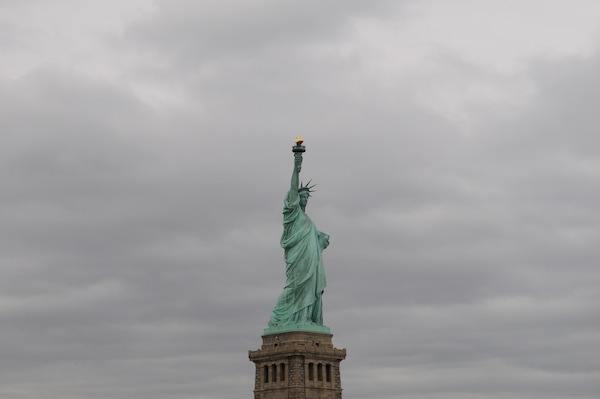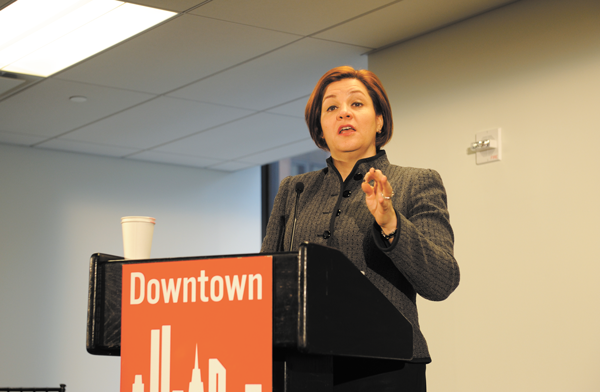Climate change is here. Between the spiking temps, wildfire haze, flooding rainstorms and other troubling signs, there is no doubt that a global crisis is underway. While the challenges presented by climate are daunting, there are important, effective ways to minimize our carbon footprint, as individuals and as New Yorkers — like composting.
Composting is an easy way to keep organic waste out of landfills. About a third of New York City’s residential waste stream is organic, and when it goes into a landfill, it breaks down into greenhouse gasses. But when it gets processed as compost, it yields a nutrient-rich fertilizer that can be used for all sorts of eco-friendly purposes.
For the last year and a half, the Downtown Alliance has been working with the Department of Sanitation to run a public composting pilot in Lower Manhattan. The Alliance installed 10 app-secured composting bins around the neighborhood, all accessible 24/7 and located within a short walk from nearly anywhere in our district. The program’s intended goal was to test whether an app-secured bin could be used successfully in a busy downtown area, as well as to generally make composting more accessible to people in Lower Manhattan.
And we hit it out of the park.
We initially projected that a couple hundred people would sign up for the program, but as of the end of May, we had more than 2,500 enrolled, more than half of whom were repeat users. The bins have been used more than 31,000 times since the program’s inception, and we’ve collected more than 105,000 pounds of compost — that’s about seven adult elephants worth!
Most importantly, the program has revolutionized how people downtown dispose of their waste. Though composting isn’t exactly new to New York City, prior to our pilot program, downtown workers and residents had to dispose of their organic waste at greenmarkets and other community composting drop-off sites. This significantly limited drop-off hours, particularly during the COVID-19 pandemic, when many composting programs were paused. Six months after our program’s launch, more than 40% of our users said they used to toss their food scraps in the trash. We learned that if you give people the opportunity to compost, and if you make it user-friendly and accessible, they will change their habits, much to the planet’s benefit. And our users were excited to do it — we received an overwhelming amount of positive feedback about this program.
While our pilot is ending, composting will remain an option downtown. Due to our success in proving that a secured-access drop off model can work, the city is expanding their own smart bin composting program, with the Sanitation Department installing hundreds of new units across Manhattan. This comes as elected officials debate making composting mandatory for all New Yorkers; whether or not that becomes a reality in the near future, it’s beneficial for all of us to start thinking more about what we do with our waste, organic or otherwise.
If our small program taught us anything, it’s that composting calls for a minor change in habits, with a big impact. Plus, if you make composting easy, people will not only do it, they’ll be excited about it, too. After all, it’s on all of us to protect our planet, from elected officials, to business improvement districts, to the residents, workers and tourists who help our neighborhoods thrive. Together, we can make a small change to effect a big impact.
Jessica Lappin is president of the Downtown Alliance.





































